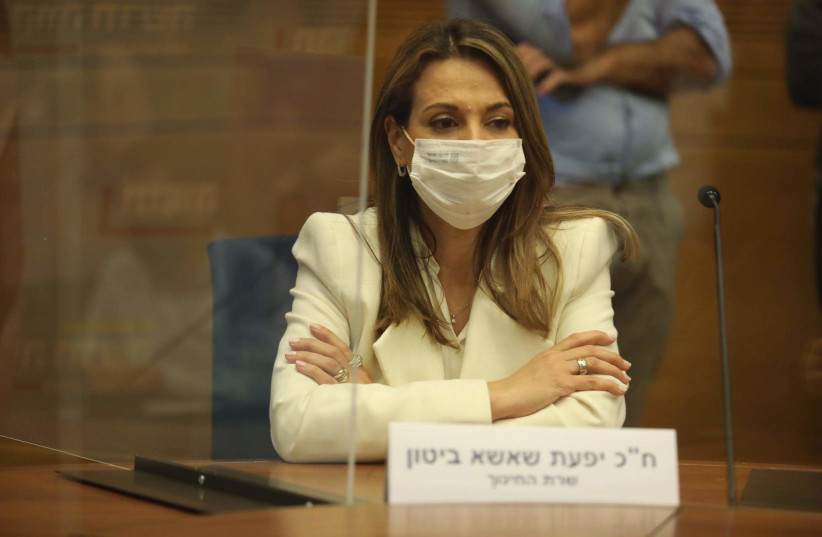Post-COVID: A catalyst for the education crisis

Teachers need to be on a much larger salary, a global salary, for a full working week.
Way back in December, when many school principals began to plan for the coming school year, it was blatantly obvious that the education system was in trouble. On a basic level, there are no school counselors, no English, Mathematics or Science teachers and recently, it is becoming more difficult to find humanities teachers. While raising several valid points, Yitzhak Klein’s perspective of the education system (“The teachers’ crisis, real and imaginary,” May 24) is based almost entirely on statistics while remaining removed from a reality in which principals cannot find teachers, good ones or otherwise, to fill posts for 2022-2023.
Yes, there is a distinct lack of quality teachers. Yes, effective teachers, no matter their age, need to be remunerated accordingly and yes, principals should be paid according to executive wages. However, we need to take a closer look as to what has occurred over the last two years and the effects of COVID-19 on the teaching profession.
Society as a whole and teachers, in particular, have realized that a very good salary can be earned without leaving the home five days a week: less stress in the mornings, less fighting traffic and more time to do small household chores and be at home when the kids come in from school. During lockdowns and extended periods at home, teachers experienced a working world in which they can take more than two minutes to eat lunch, where they have more than half an inch of work space and where they can have uninterrupted bathroom breaks.
But possibly even more significantly, they have been more heavily exposed to the world of hi-tech and possibilities that exist outside of the teaching profession. Teachers now realize that if you are capable, possess several soft skills such as good teamwork and problem solving, or that your level of English is good, one can earn an excellent wage (two or three times a starting teacher’s salary) without the never-ending stress of teaching.
Furthermore, through being exposed to other work environments or simply more awareness, teachers now know that those in hi-tech are treated differently: high quality food at meetings, no need to buy your own stationary, technical back-up when needed and company get-aways in good hotels or even abroad.
A FURTHER issue recently highlighted in the current education crisis is that of school holidays. The problem is not that of school holidays; statistically, Israel teaches more days per year than many other countries. Rather, the school year calendar needs to be changed in order to account for the Jewish holidays and to give both children and staff more sensibly spread breaks. This will aid both the staff’s and children’s well-being.
What are the solutions?
So what are the solutions? Many changes need to be enacted in the long term in order to avert an irreversible crisis but there are three things that are critical in the short term.
First and foremost, teachers need to be on a much larger salary, a global salary, for a full working week. It cannot be that a starting salary for a teacher is about NIS 8,000 while in hi-tech, that same teacher just out of university could earn more than twice the amount. In addition, this global salary needs to be free of the tens of subsections of agreements added to the salary. These cause great confusion, angst and frustration: a bad combination for a working environment.
Secondly, a principal needs to have more autonomy. The Education Ministry is currently attempting to give principals more autonomy but these steps need to be more far-reaching. The principal needs full autonomy to decide how the working hours of staff are used as the needs of each school are vastly different. In addition, and just as in many other workplaces, principals should be able to give performance-based bonuses to staff.
This will increase the taking on responsibility, both by principals and teachers. Currently, the absurdity of the situation is such that in order to receive a slight raise, a teacher has to survive another school year and sign up for a poor quality on-line course: clearly, this encourages mediocrity rather than excellence. In addition, principals should be given proper budgets in order to cater to staff-wellbeing, an area that is not given any proper attention.
Finally, the school calendar needs a drastic rethink. There needs to be four terms, each lasting ten weeks with two weeks break between each and six weeks in the summer.
The school year cannot begin each year on September 1 no matter what. It makes no sense whatsoever. The consequences damage both children and teachers.
This requires a cultural reset which presents its own challenges. Yet, the last two years have shown that cultural and societal resets are critical for modern society to prevail in an ever-changing reality.
The writer is the principal of Studio Ankori: A school for creative thinking and entrepreneurship, in Jaffa.
Jerusalem Post Store
`; document.getElementById("linkPremium").innerHTML = cont; var divWithLink = document.getElementById("premium-link"); if (divWithLink !== null && divWithLink !== 'undefined') { divWithLink.style.border = "solid 1px #cb0f3e"; divWithLink.style.textAlign = "center"; divWithLink.style.marginBottom = "15px"; divWithLink.style.marginTop = "15px"; divWithLink.style.width = "100%"; divWithLink.style.backgroundColor = "#122952"; divWithLink.style.color = "#ffffff"; divWithLink.style.lineHeight = "1.5"; } } (function (v, i) { });

